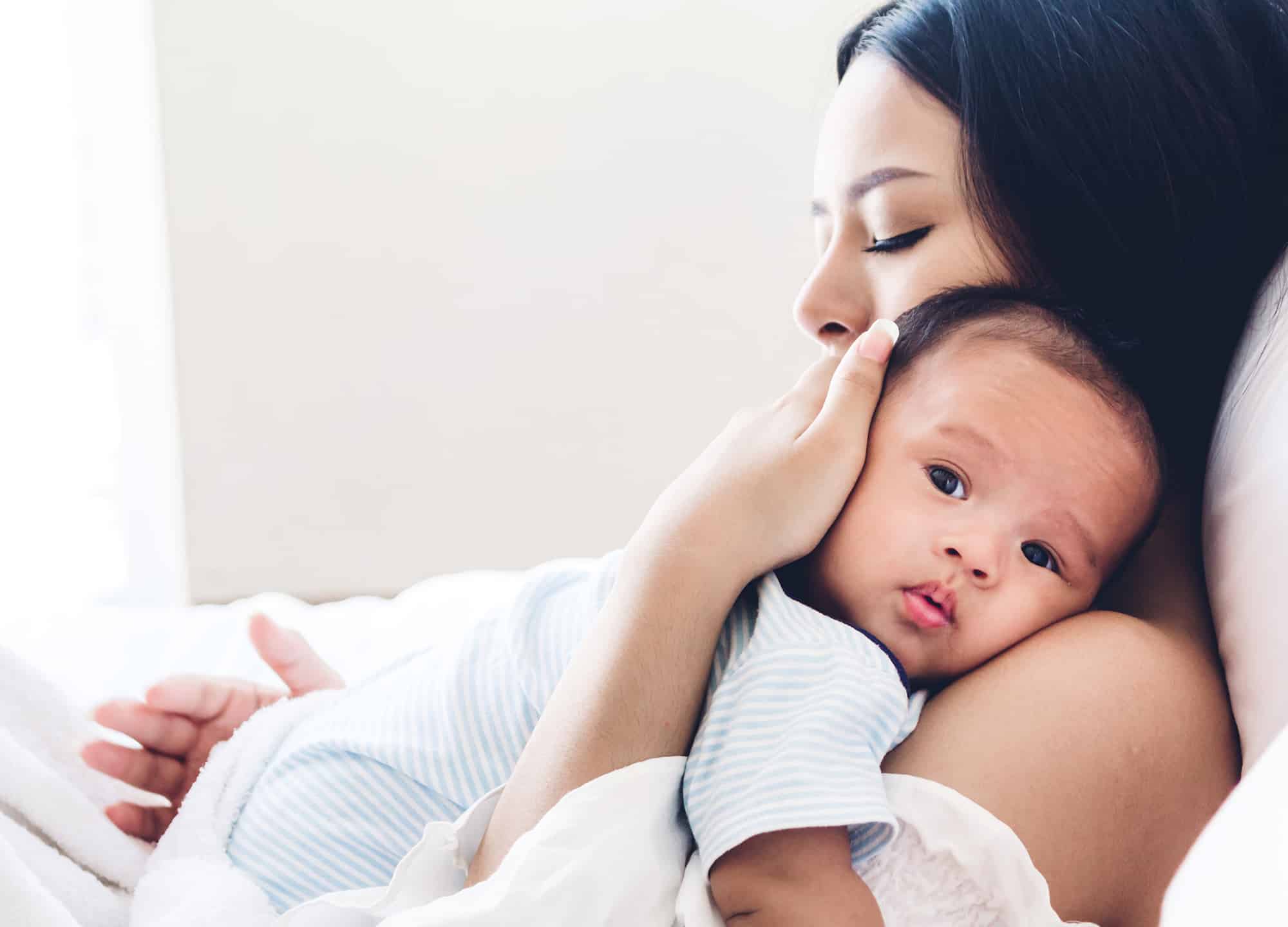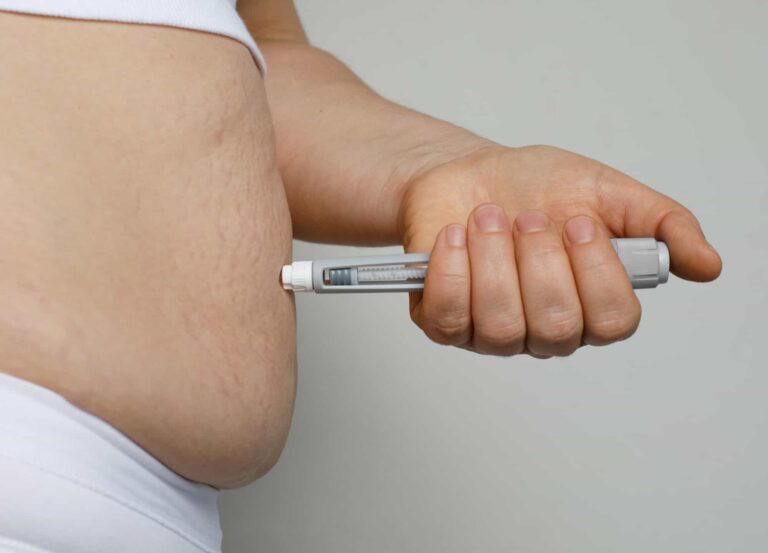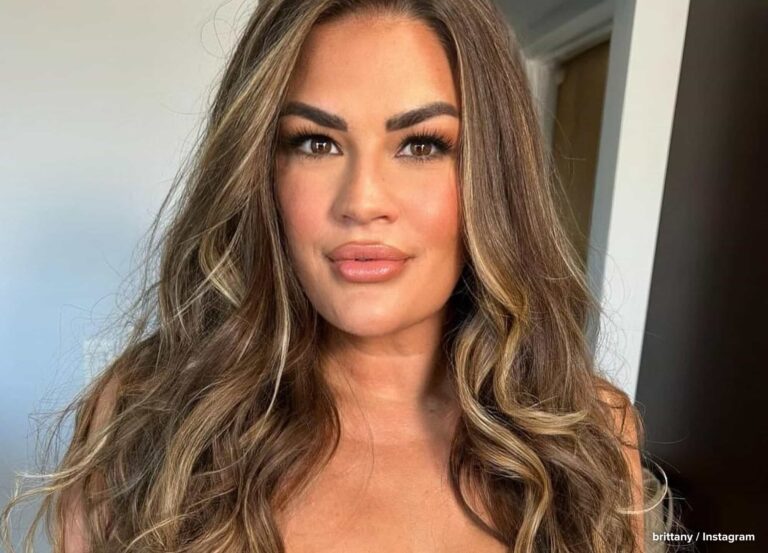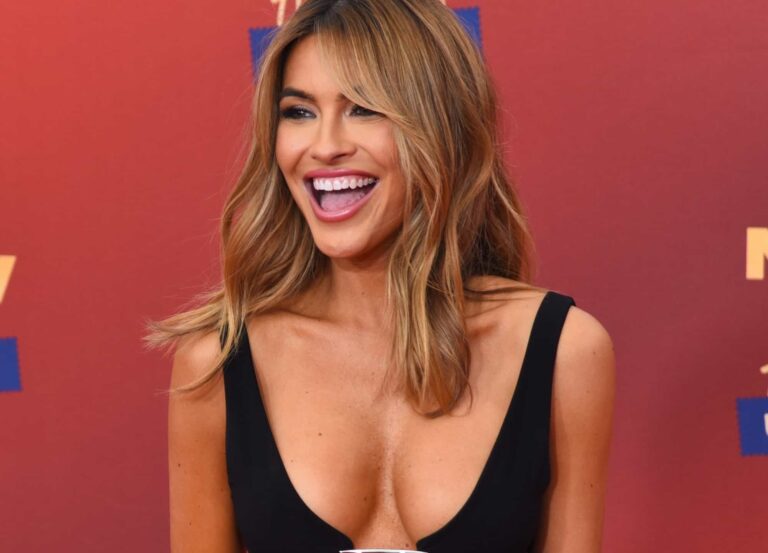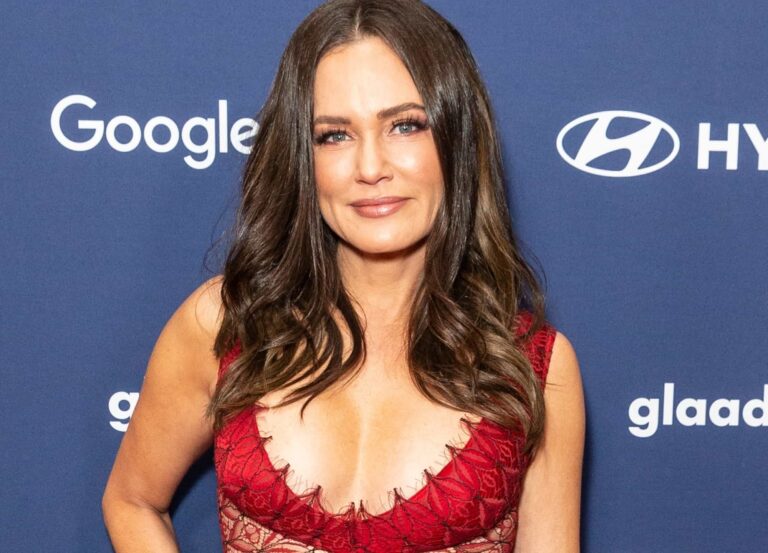The devastating reality of breast cancer is that it has the potential to steal from women the very things that make them feel like women: their breasts, their hair, their sex drive, their fertility. The diagnosis already requires women to make some of the hardest medical decisions they’ll ever face—mastectomy or lumpectomy, chemotherapy and/or radiation, breast reconstruction or going flat; for those who want children or want the option down the line, the treatment protocol becomes that much more intensive.
Below, three women, all of whom were at different stages of family planning when they were diagnosed, opened up about the fertility choices they made after finding out they had breast cancer—and the things they wish they had done differently.
Related: I Wish I’d Gotten a Mastectomy Even Sooner
Jill’s story
Jill* is a 43-year-old woman living in Berkeley, California. At age 38, she was diagnosed with stage 1 breast cancer.
I probably had a few days, if that, to consider breast cancer treatment options after getting my diagnosis. The doctors really rushed me. You’re looking at a mastectomy, then chemotherapy or radiation, which they say will likely render you infertile. I was living that New York City lifestyle—dating but really focused on my career and not sure whether I wanted kids—so I had to think critically about my fertility for the first time. I was much more emotional about that than I was about breast cancer. It sounds weird, but I felt kind of immune to the diagnosis—it was just a process I’d go through and move on from. Choosing to be infertile was much heavier to me, so I went ahead with egg freezing.
Normally, you have to go through a long application and watch a bunch of preparation videos about how to do the shots and what impact the hormones will have on you, but I got pushed to the front of the queue. I got my authorization in one day and was at the NYU fertility center the very next. The whole thing was kind of a blur, but what struck me was the demographic: it was all wealthy white women, like your typical yoga-pants girls. It felt like a very privileged thing to be doing. My insurance covered around 75%, so that’s another reason I figured I might as well do it.
A lot of women say the egg-retrieval process is so terrible and dealing with the hormones is awful, but it was a breeze for me. The center does this test that scores the viability of your eggs, and I scored very well. I remember feeling proud, like I did well on the SAT or something. I had 10 eggs at the end, which the doctor felt was a good number.
After that, I elected not to do radiation and chemo, even though that’s what was recommended. I just did the full Angelina Jolie and removed all my breast tissue, then got a breast reconstruction. I sized up from an A to a B and was really happy initially, but now I kind of hate them. The implants feel very foreign, and I’m always really cold. [Editor’s note: this sensation is common post-mastectomy, when fatty breast tissue is no longer there to help regulate temperature.]
I got married last year, and we did actually try to use those eggs. I got pregnant with one of them, then lost the pregnancy a month or two in, so that was really hard. Looking back on it, I guess I wish I’d saved more eggs. I didn’t really prioritize family at the time, but that’s what I would change now. Doing egg freezing when you’re younger just gives you more options and takes away the pressure to go down the route of a serious relationship or marriage while you’re focusing on your professional life.
*Name has been changed to protect privacy.
Related: 5 Things You Need to Know About Your Breast Reconstruction Options
Kristy’s story
Kristy is a 47-year-old woman living in Los Angeles. At age 45, she was diagnosed with stage 1 breast cancer.
I was single, living in New York City and had just turned 40 when I decided to try to have a kid on my own. I found a sperm donor and did two cycles of IVF, both of which were unsuccessful. I wasn’t really releasing eggs, but they did get a few embryos—which turned out to not be viable, after testing. It was disheartening and took a toll on my body, so I put that on hold and took some time to decompress. I’m very healthy, I’ve been a vegetarian since I was 13 and I don’t drink a lot, so everybody was always telling me I had so much time. I was never prepared for it not to work though—no one had told me it might not.
I moved to Los Angeles around that time and went to see this anti-aging doctor who did hormone replacement and had come highly recommended from a friend. I wasn’t worried about breast cancer—I have no family history of it and didn’t have any lumps; but I hadn’t had a mammogram in years, and this doctor had something called SonoCiné, which is an ultrasound breast cancer screening machine for women with dense breasts. I did it, and it detected some abnormalities. I thought there was no way, but I eventually went to a breast cancer specialist. I did two mammograms, and both came back fine, but another sonogram detected breast cancer, which biopsies then confirmed. I now tell all my friends, “Don’t trust a mammogram.”
I was shocked by my diagnosis, and I’m convinced IVF is the cause of it. It was estrogen-positive breast cancer, which means that the hormone drives the cancer cells to grow. When I told my breast doctor I thought this happened because of IVF, she said there was a possibility—and I think it’s important for women to consider. I spent, like, $60,000, and I have nothing to show for it but this. I could scream. [Editor’s note: there is currently no conclusive evidence that IVF increases the risk of breast cancer. A recent study of more than 660,000 women in Denmark did report a 65% increase in the rate of breast cancer for women over 40 who have received IVF in order to conceive a child; however, experts say a variety of other factors may also be accountable.]
Soon after, I did a double mastectomy with reconstruction, and I’m glad I made that decision, because they found cancer cells in the other breast. My breasts actually look so much better than they did before, which I’m grateful for. I didn’t have to do sizers; I went straight to implants and went back the following year for a fat transfer. The days of scars and looking botched are over, if you have the right doctor.
I thought you did the double mastectomy and that was it, but I had to go through four months of chemo after. I lost my hair and all that—the process was so brutal. And the doctors are still telling me there’s a 30% chance the cancer could come back.
When I was going through IVF, a friend actually donated two embryos to me, so I figured I could get them implanted down the line when I was ready. After my cancer treatment, I flew to Colorado to meet with this really great doctor who gets everybody pregnant. He told me it wasn’t going to happen for me and that I needed an egg donor. If I use my friend’s embryo, I can’t carry the baby, which is awful because the whole reason I wanted to carry was so I could breastfeed. I’d have to get a surrogate at this point. There have been so many pills to swallow when it comes to fertility after breast cancer. I always thought I’d be a mom, but it kind of stinks that I’d need a surrogate and my baby wouldn’t be able to nurse. At the same time, I’m grateful I have the option—but I’m still thinking about what to do.
Related: I Had a Preventive Double Mastectomy When I Learned I Had the BRCA2 Gene Mutation
Lorien’s story
Lorien is a 42-year-old woman living in Scotts Head, Australia. At age 33, she was diagnosed with stage 2 breast cancer.
When I found out I had breast cancer, I was in a de facto relationship and our son was 11 months old. I had discovered a lump while I was on holiday and went to my general practitioner as soon as I got back. She wasn’t concerned about it at all but did a biopsy just to check. It turned out to be aggressive invasive ductal carcinoma. Things moved very quickly after that; I had to stop breastfeeding, which was traumatic, and within 10 days, I had gotten a mastectomy and 17 nodes removed.
The treatment protocol at the time was surgery first, then chemotherapy. I was told that if I wanted to preserve some eggs or embryos through IVF, I could do that in the six weeks before starting chemo. It was a pretty horrific process; I was in such a fragile state after the mastectomy, to then get injected with hormones on top of that… it was all just really horrible. But we got a huge number of healthy embryos—about 16—so it was worthwhile, even though we were told we couldn’t use them anytime soon.
I did chemo followed by radiation, then started on adjuvant hormone therapy for the next five years, which basically threw me into menopause. I had to get injections every month and take tablets every day to slow down my ovaries and hormones. When those five years were over, my doctor told me I could try to have a baby. My partner and I were worried, but it worked in the first go—we got really, really lucky. Now we have a little girl who is 15 months old, but it’s been a real rollercoaster.
My only regret is having done reconstructive surgery at all. I got breast implants, which I’ve since taken out, and a lift on my left side. The lift damaged the nipple and made it impossible to breastfeed. I was so engorged with milk, but it wouldn’t come out. I put myself under unnecessary distress by getting reconstruction as I was dealing with all the side effects of the drugs, but I was so determined to do it at the time. Looking back, I wouldn’t have bothered and then I might have been able to feed my daughter—but it’s such an individual decision.







